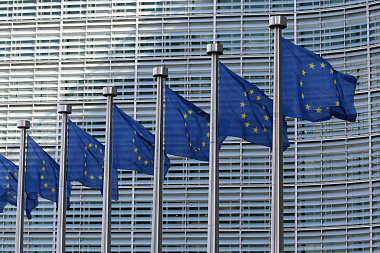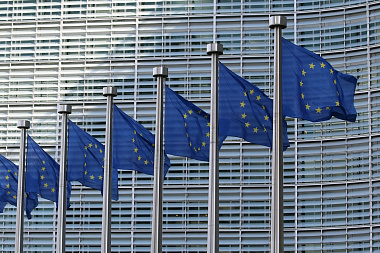In para. 2 of Decree 585, the Russian President also instructed the Russian Government to ensure that measures are taken to reduce the impact of the DTTs suspension on the Russian economy. These measures were outlined on 28 September 2023 in a document titled The Main Directions of the Budget, Tax and Customs & Tariff Policy for the 2024 and 2025-2026 Target Period, which the Ministry of Finance of the Russian Federation published on its website.
According to para. 3 of the Corporate Profits Tax section of Annex 2 to such document, it is suggested that an exemption from or a reduced corporate profits tax rate should be established for certain types of income paid to those foreign companies that have previously been subject to an exemption from withholding taxation or a reduced withholding tax rate in accordance with the DTT suspended by Decree 585. Therefore, as a matter of fact, it is proposed to introduce a certain mechanism of “returning” profits tax incentives to certain categories of foreign companies that continue transacting with Russian taxpayers.
Proposed changes to the Russian Tax Code
In pursuance of the abovementioned proposal, on 29 September 2023, the Russian Government submitted Draft Law No. 448566-8 “On Amending Part Two of the Tax Code of the Russian Federation” (“Draft Law”) to the State Duma.On 17 October 2023, the State Duma passed the Draft Law in its first reading with some comments, mainly of a technical nature.
In addition to the fact that the Draft Law provides for a significant increase in revenues to the Russian budget in the form of increased excise taxes on alcohol and tobacco products, as well as MET rates for gas, these novelties also introduce significant amendments to Articles 284 and 310 of the Russian Tax Code (“RTC”) related to Russian withholding tax for certain types of income paid by Russian counterparties to foreign companies.
Income of foreign lessors under agreements for the settlement of insurance and pre-action claims arising out of aircraft lease agreements
The Draft Law proposes to add a new subparagraph 3 to para. 2 of Article 284 and to establish a 0% profits tax rate on income received by those foreign entities that are lessors under agreements on the settlement of insurance and/or pre-action claims arising out of aircraft lease (leasing) agreements concluded with foreign lessor companies before 5 March 2022 if certain terms and conditionsThis refers to aircraft registered or subject to registration in the Russian Civil Aircraft Register, including auxiliary power units and/or aircraft engines, provided that such agreements on the settlement of insurance and/or pre-action claims stipulate the transfer of ownership title to such aircrafts, auxiliary power units and/or aircraft engines to a Russian entity and that, in order to carry out such settlement with foreign lessor companies, funds from the National Welfare Fund shall be allocated. are met.Taxation of certain types of income of foreign entities
The Draft Law suggests amending Article 310 of the RTC to introduce a tax exemption (new subparagraph 11 of para. 2 of Article 310 of the RTC) or reduced withholding tax rates (new subparagraph 3.1. of Article 310 of the RTC) for certain types of income paid to those foreign companies that were previously subject to an exemption from withholding tax or a reduced withholding tax rate in accordance with a DTT suspended by Decree 585. The specific type of incentive (a tax exemption in Russia or a reduced rate) will depend on the home country where the foreign counterparty of the Russian taxpayer is located, taking into account the DTT provision which is now non-applicable due to the suspension of the DTT, but which is being “revived” due to these changes to domestic legislation.The list of income paid to those foreign companies that will be covered by these measures is limited and consists of the following income (“Income List”):
- interest incomeAs a rule, an exemption or a reduced rate is set in Article 11 “Interest” of the respective DTT. paid to export and credit agencies, to organisations engaged in banking activities in accordance with their personal law, on debts incurred prior to the adoption of Decree 585;
- income from lease (leasing) of aircraftsAs a rule, an exemption or a reduced rate is set in Article 8 International Transportation Income of the respective DTT. (including auxiliary power units and/or aircraft engines) under aircraft lease (leasing) agreements concluded with foreign lessor companies before 5 March 2022 if certain terms and conditionsWe refer to aircrafts registered or subject to registration in the Russian Civil Aircraft Register. At the same time, if the terms of aircraft lease (leasing) agreements with foreign lessor entities are amended after the adoption of Decree 585, the provisions of this paragraph shall apply to income in an amount not exceeding the amount of income from the lease (leasing) of aircraft (including auxiliary power units and/or aircraft engines) determined in accordance with those provisions of the abovementioned agreements that were in force before the adoption of Decree 585. are met;
- income from the provision of the right to broadcast leading international and foreign sporting events, as well as the right to use international entertainment and sports contentAs a rule, an exemption or a reduced rate is set in Article 12 “Royalties” of the respective DTT.;
- royaltiesAs a rule, an exemption or a reduced rate is set in Article 12 “Royalties” of the respective DTT. under licence agreements — concluded before the adoption of Decree 585 — for granting the right to use software and other intangible assets that have no analogues in the Russian Federation;
- income from the sale of those marine vesselsAs a rule, an exemption is set in Article 13 Property Alienation Income or Article 21 “Other Income” of the respective DTT. that are registered in the Russian International Register of Vessels and located in the territory of the Russian Federation (the Draft Law provides for a tax exemption only).
Conditions for application of new rules
According to the Draft Law, a prerequisite of the application of these tax exemptions or application of reduced tax rates in Russia is the confirmation of two circumstances:- foreign entities are the beneficial owners of income generated in accordance with para. 1 of Article 312 of the RTC; and
- the Russian entity paying income and the foreign entity receiving the income must not be related parties.
Period of application of these tax incentives
The Draft Law provides that the exemption and reduced tax rates should apply retrospectively to income paid to foreign companies by a tax agent from 8 August 2023. At the same time, the foregoing procedure is expected to be applicable only until 31 December 2025.Conclusions and practical comments
Returning tax exemptions to foreign companies in respect of certain types of income in itself is, no doubt, quite a positive development. However, according to the Draft Law, the list of income covered by the changes is very limited and, we believe, it will not affect most of the foreign companies operating in Russia or continuing to do business with Russian tax residents.The form chosen by the legislator to adopt the amendments (directly amending the RTC, rather than making amendments to Decree 585, or adopting a new decree) indicates that such amendments are selective. They are primarily aimed at eliminating tax burden for current transactions and a number of new transactions involving the use of intellectual properties with unrelated foreign companies. Shifting the burden of withholding tax through “tax gross-up” clauses to Russian counterparties would make such transactions more expensive for Russian business. As for transactions of subsidiaries of foreign companies or intra-group transactions of Russian residents with related foreign companies, they will not fall within the abovementioned exemptions. As a result, this will most likely trigger either a revision of the relevant transaction price terms, or even a possible suspension or termination of such deals due to the fact that withholding tax paid in Russia will not be creditable in the home country of tax residence of the foreign income recipient and the transaction may lose its minimum margin — PLI for income recipient in the TP rules context.
In this regard, it is important to emphasise that the Draft Law is being adopted in pursuance of para. 2 of Decree 585, i.e., as the legitimation of measures aimed at reducing the impact of the suspension of the provisions of the DTT on the Russian economy. However, Decree 585 suspending the provisions of the DTT is still in force. Therefore, the Russian Federation chooses a legislative pattern of temporary (until 2025) incorporation of certain suspended and inapplicable provisions of the DTT into its domestic Russian tax legislation. This circumstance effectively means that the abovementioned provisions of the Draft Law on the taxation of certain types of income of foreign entities will become applicable amid the interpretation — by Russian financial and tax authorities and courts — of terms, categories, concepts (such as resident, dividends, interest, beneficial owner of income, etc.) on the basis of the RTC rules with the application of collection, tax control, appeal of decisions of tax authorities and other procedures that are also provided by the RTC.
As a result of the legal pattern in question, the meaning of the provisions of the DTT covering the interpretation of the main categories (residence, dividends, interest, property, etc.) will not apply to the provisions on preferential rates and other incentives built into Russian tax legislation. In addition, the principles and procedures provided by the DTT, such as non-discrimination, incentives’ application conditions, the primary purpose test (PPT), the mutual agreement procedure, etc., may also not apply to the rules of taxation of income of foreign entities newly established in the RTC in this way.
As a matter of fact, the currently chosen pattern for incorporating a number of provisions of the DTT into the RTC along with suspending a number of provisions of international treaties means that the RTC provisions actually take precedence over the provisions of the DTT, allowing the tax authorities and courts not to refer to the provisions of international treaties, including interpretations given to them under international court cases, and recommendations of international bodies and organisations (e.g., recommendations of the Model Convention or the OECD Recommendations).
We will follow the progress of the Draft Law in the State Duma and inform you additionally of any changes to its status or content.







